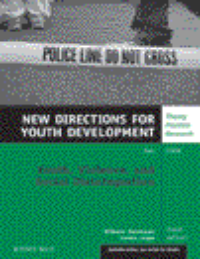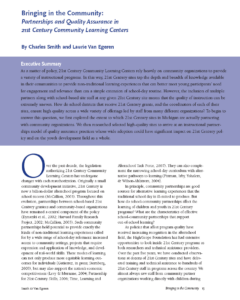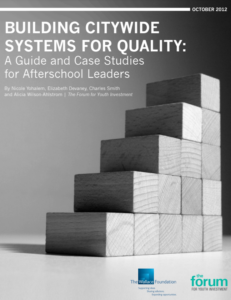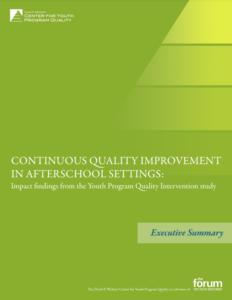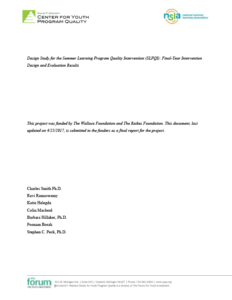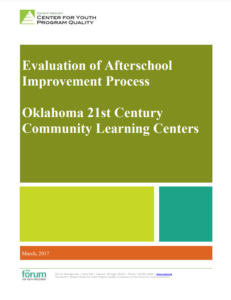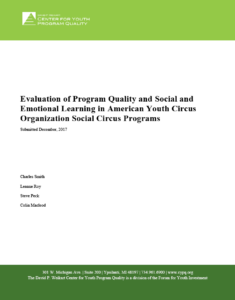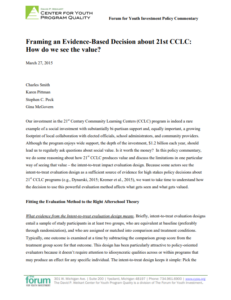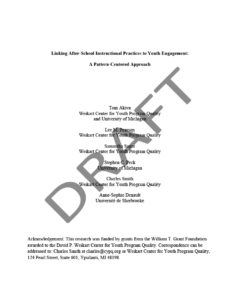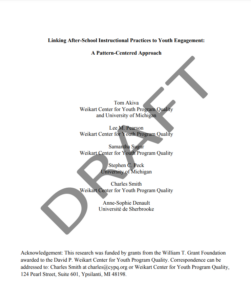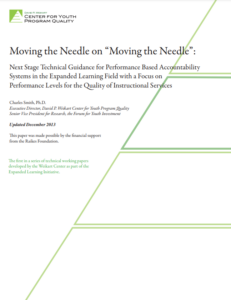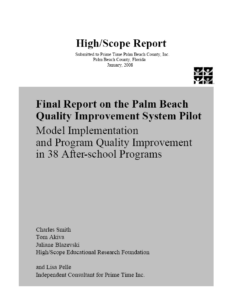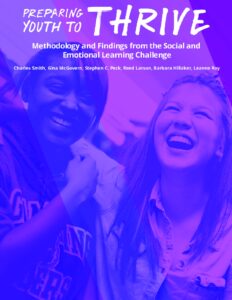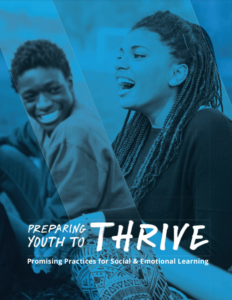Publications by type Legacy Resource
Back to Publications
This research article discusses efforts to define and improve the quality of afterschool services, highlighting areas of agreement and identifying leading-edge issues. We conclude that the afterschool field is especially well positioned to deliver high-quality services and demonstrate effectiveness at scale because a strong foundation has been built for continuous improvement of service quality.
This paper, published in the Fall 2008 edition of Afterschool Matters: Occasional Paper Series, describes community partnerships in Michigan’s 21st CCLC programs.
This guide offers case studies that explain how cities and intermediaries can work with afterschool providers across a neighborhood, city, or region to build quality into the programs that are part of an afterschool system.
The David P. Weikart Center for Youth Program Quality conducted a three year intervention study to examine the Youth Program Quality Intervention (YPQI). The YPQI is a data-driven continuous improvement model for school and community-based sites serving youth during afterschool hours.
This paper describes implementation and outcomes for QIS in school-based summer learning programs in multiple cities.
This paper describes validity of QIS performance measures and longitudinal change over four years in Oklahoma 21st CCLC programs.
This report exemplifies use of the suite of SEL measures and benchmarks in the American Youth Circus Organizations network.
In this policy commentary, we do some reasoning about how 21st CCLC produces value and discuss the limitations in one particular way of seeing that value – the intent-to-treat impact evaluation design.
This paper uses pattern centered methods to describe the association between the quality of instruction available and youth’s level of mental engagement with that instruction.
This paper uses pattern centered methods to describe the association between the quality of instruction available and youth’s level of mental engagement with that instruction.
This paper uses pattern-centered methods to increase the usefulness of information available from survey-based skill measures, with a focus on using survey-based skills measures to detect skill change over time.
This paper introduces the nomenclature of performance-based accountability systems (PBAS) to the expanded learning field, provides a policy case study for a countywide system in southern Florida and uses data from that system to explore the issue of quality thresholds. We present an expanded design standard to guide development and improvement of PBAS policies and further develop a theory of lower-stakes accountability to guide effective use of incentives of various types. Findings suggest that (1) the PBAS framework defines critical concepts and improves our ability to describe existing quality improvement systems, (2) the Youth Program Quality Assessment (Youth PQA) can be used to produce a program rating of sufficient reliability for use in a PBAS, and (3) that the Palm Beach County PBAS design is an exemplar for expanded learning policies.
A presentation of baseline and post-pilot program quality ratings for 38 after school programs participating in a pilot quality improvement system in Palm Beach County, Florida.
This technical report describes methodology and findings for (1) best-practice SEL standards, (2) validation of a suite of SEL performance measures for use in QIS, and (3) performance benchmarks for out-of-school time programs focused on building SEL skills with vulnerable children/youth.
The guidebook describes SEL standards and organizational and curriculum features for a set of eight exemplary SEL programs.
